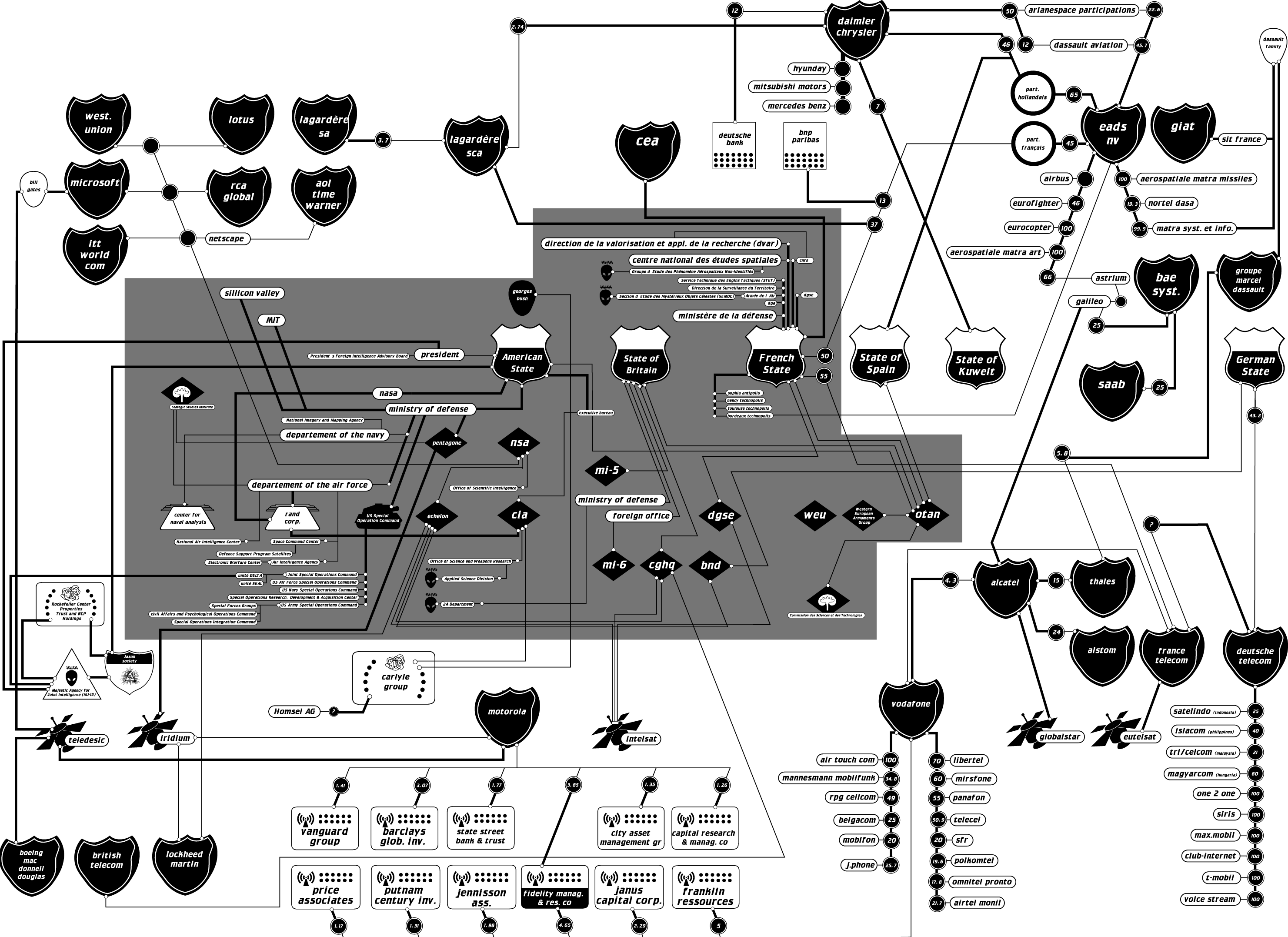|
|
|
|
| . |
| . |
| |
 |
| |
| index > cartes / maps
> |
| |
| chroniques de guerre
1 / wartime chronicles
1 |
| |
| Bureau d'études, 2001 |
| |
technological and military pole: telecommunications
and armaments firms,
secret services, states, think tanks, networked police forces, sects, cable networks,
satellites, universities...
note 1 - "One of the
turning points of the Revolution in Military Affairs came when its leaders convinced
the President and key members of Congress
that traditional American ethics were a major hindrance to the RMA.... With values
changed, technology then opened the door to profound innovation.
In the pre-RMA days, psychological operations and psychological warfare were primitive.
As they advanced into the electronic and bioelectronic era,
it was necessary to rethink our ethical prohibitions on manipulating the minds of
enemies (and potential enemies) both international and domestic....
Whenever possible, profitability was used to encourage private and quasi-private
industries to develop appropriate technology. For example, much
of the lucrative technology of surveillance, intelligence collection and attitude
manipulation used to solve the domestic crime problem was easily
adapted to conflict short of war. The same held for new weapons, especially non-lethal
biological ones and advanced psychotechnology...
" (“The Revolution in Military Affairs” Strategic Studies Institute - US Army
War College, http://carlisle-www.army.mil/usassi/ssipubs/pubs94/rmacsw/rmacsw.pdf)
note 2 - "For years, associations such as the National Space Society and the
Lunar Reclamation Society have been developing intense lobbying activities
for revision of the treaty on outer space signed in 1967, with the aim of promoting
the commercial and proprietary exploitation of the extraplanetary territory,
encouraging the development of new aerospace technologies on a '”first come, first
served' basis" (Association of Autonomous Astronautes, Quitter la gravité,
L'éclat, November 2001, p. 88). |
| |
|

|
| |
| index > cartes / maps
> |
| |
|
|
|
|
|